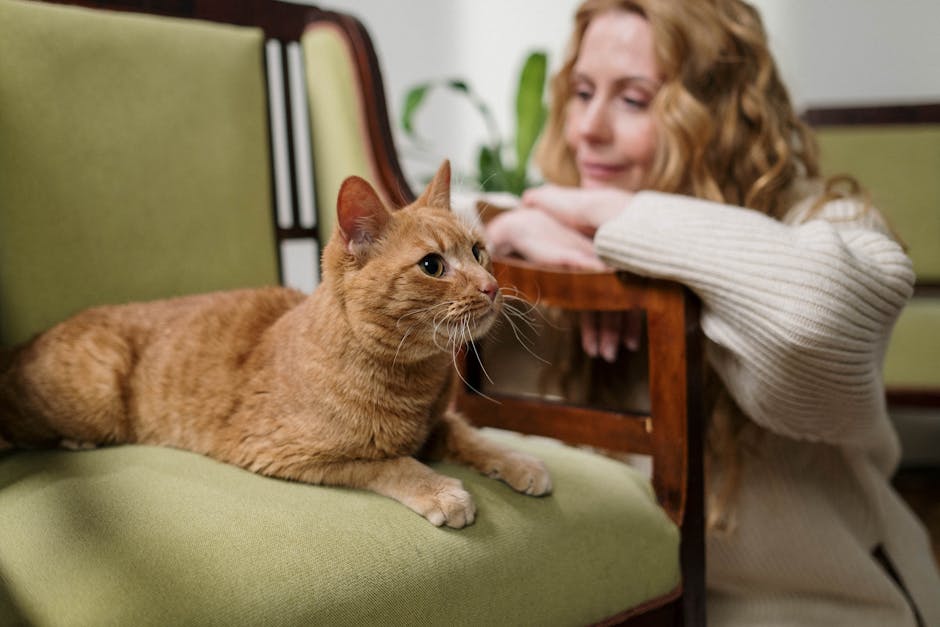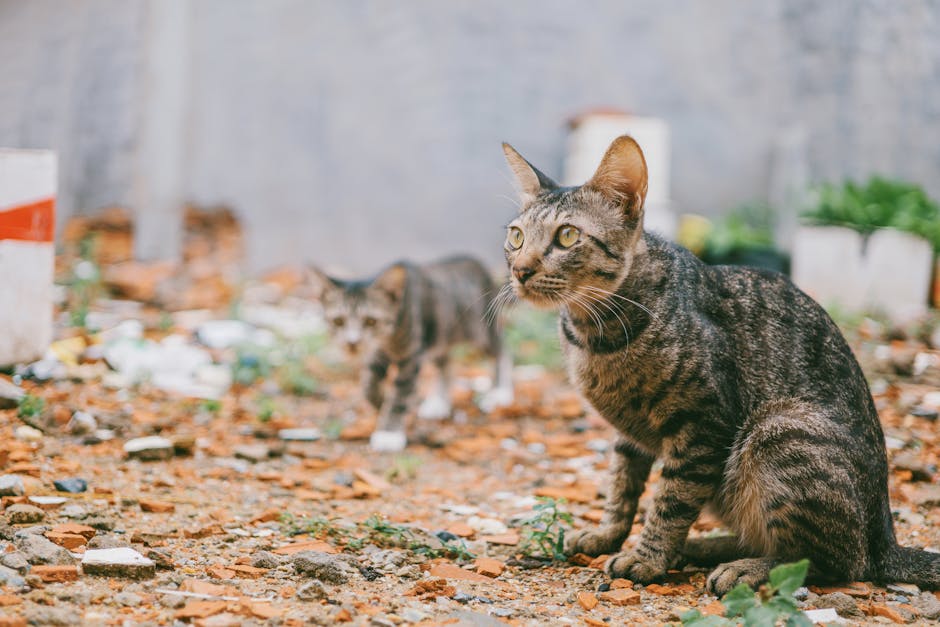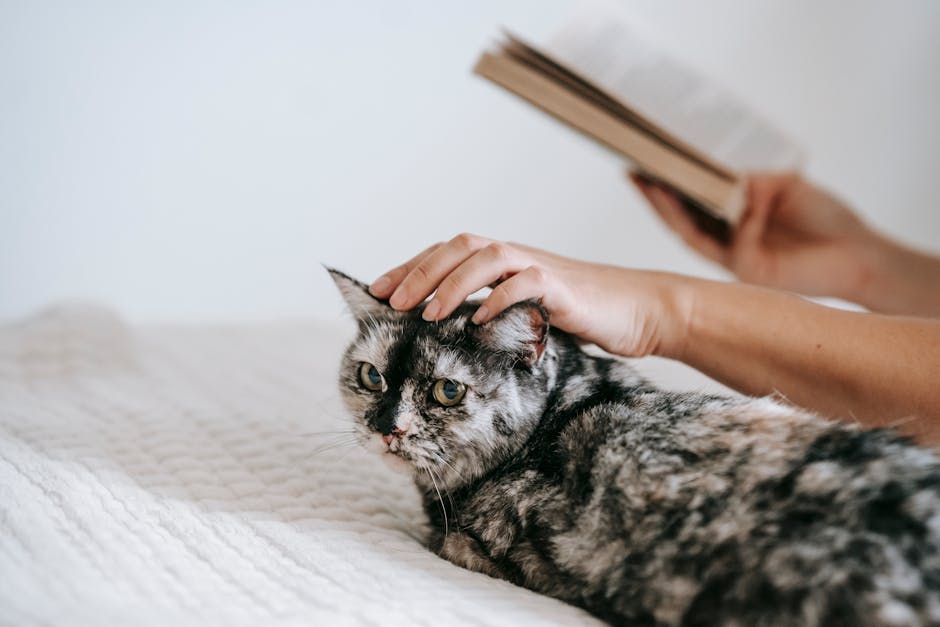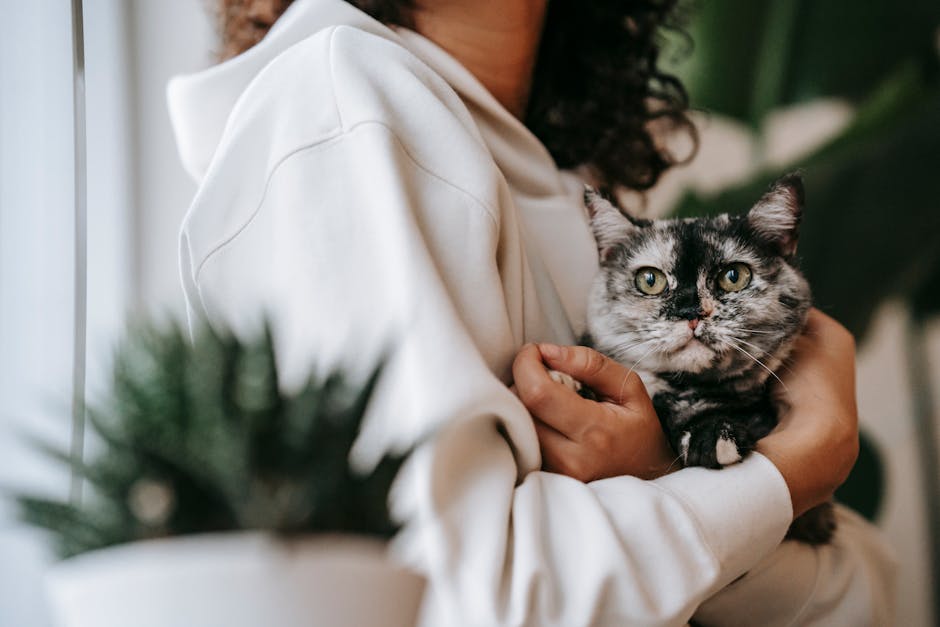Cats are beautiful creatures that have been domesticated by humans for thousands of years. Often chosen as pets for their independent nature, cats have become one of the most popular pets worldwide. While cats offer many benefits to their owners, they also come with a certain level of responsibility. In this blog post, we will explore the question of whether cat owners are responsible for their cats. We will discuss the different aspects of cat ownership and the obligations that come with it. So, let's explore this topic in more detail.
Legal perspective: Explain laws surrounding animal ownership and the responsibilities that come with it

In terms of the law, pet owners are considered responsible for the actions of their pets. Even though cats are often viewed as independent creatures that are less likely to cause harm compared to dogs, owners are still held accountable for any damages or injuries their feline friends may cause.
For example, if a cat scratches or bites someone, the owner can be sued for any resulting injuries. In addition, if the cat damages property belonging to someone else, the owner may also be held liable for any repairs or replacement costs.
It is important for cat owners to be aware of their legal responsibilities and take steps to prevent any potential harm caused by their pets. This includes keeping their cats indoors, training them to use a scratching post instead of furniture, and ensuring they are up to date on all necessary vaccinations. By doing so, cat owners can minimize the risk of any legal issues arising and ensure the safety of their community.
Financial responsibility: Detail the costs associated with owning a cat and how they should be budgeted for

Owning a cat can come with its fair share of financial responsibilities. In addition to the initial cost of adopting or purchasing a cat, there are ongoing expenses that need to be budgeted for. These expenses include veterinary bills, food, litter, toys, and grooming supplies. It is important for cat owners to factor in these costs when budgeting for their household expenses.
Veterinary bills can be relatively expensive, especially if the cat requires medical attention or surgery. Routine checkups, vaccinations, and preventative medications such as flea and tick medicine can add up over time. Additionally, if the cat develops a health condition, it can require ongoing medical management that may be costly. To prepare for potential medical expenses, cat owners should consider investing in pet insurance or setting aside a portion of their budget for unexpected veterinary bills.
Food and litter are ongoing expenses that are necessary for keeping cats healthy. Choosing a high-quality cat food can be more expensive but may result in lower veterinary bills down the line. Litter expenses can add up quickly, especially if the cat is particular about the type of litter they prefer. It is important for cat owners to research and budget for these expenses in advance.
Finally, toys and grooming supplies may seem like optional expenses, but they can be important for a cat's health and happiness. Scratching posts and toys can prevent cats from destructive behaviors, while grooming supplies such as brushes and nail trimmers are necessary for maintaining a healthy coat and claws. These expenses should also be factored into a cat owner's budget.
Overall, being a responsible cat owner means taking financial responsibility for the ongoing costs associated with owning a cat. By budgeting for these expenses in advance and investing in preventative care, cat owners can ensure their furry companions live happy and healthy lives.
Health and welfare: Address the importance of providing adequate healthcare and living conditions for the cat's wellbeing
As a responsible cat owner, it's crucial to ensure your furry friend receives proper healthcare and lives in suitable living conditions. Cats are intelligent creatures that require constant attention and care, especially when it comes to their health.
It's essential to have a regular check-up with a veterinarian to keep your cat healthy and happy. From vaccinations to dental check-ups, to spaying or neutering, regular vet visits can prevent any potential illnesses and help maintain your cat's well-being. It's also important to monitor your cat's behavior and physical appearance for any signs of illness, such as weight loss, changes in eating or drinking habits, lethargy, or vomiting.
Providing your cat with a suitable living environment is also crucial for their overall health and happiness. A clean and comfortable living space with fresh litter, food, and water should be easily accessible to your cat. Cats are natural climbers, so provide them with high perches or scratching posts to allow them to exercise and play. It's also important to keep your home safe for your cat, such as hiding dangerous household items and keeping toxic plants out of reach.
In conclusion, owning a cat comes with the responsibility of providing adequate healthcare and living conditions. By taking these essential steps, you'll ensure your cat's health and well-being, resulting in a happy and healthy furry friend.
Training and behavior: Explain how cat owners can influence their cat's behavior through training and socialization

Training and Behavior: Just like dogs, cats can be trained to eliminate destructive behaviors and adopt new habits. Although cat's behavior largely depends on their personalities, owners must understand that they play a crucial role in shaping their cat's behavior. Cats that haven't been socialized with other cats and humans can be shy, anxious, or even aggressive. Therefore, owners must invest in socializing their kittens by gradually exposing them to new experiences and situations. Cat owners can also use positive reinforcement to train their cats by rewarding them for good behaviors, such as using the litter box or scratching post, and ignoring bad behaviors. Additionally, using deterrents like water spray bottles or noise-making devices can help curb destructive behavior. Overall, training cats requires patience, consistency, and an understanding of their behavior and personalities.
Safety concerns: Discuss the potential dangers for cats outdoors and the responsibility of owners to ensure their safety

Cats are curious and adventurous by nature, which can often get them into trouble when they venture outdoors. Outdoor cats face several potential dangers such as getting hit by a car, being attacked by other animals, getting lost, and exposure to parasites and diseases. As responsible cat owners, it is our duty to ensure the safety of our furry friends.
One way to ensure the safety of outdoor cats is to provide them with a secure and enclosed area to roam, such as a backyard with a fence or a cat enclosure. Another way to keep cats safe while outdoors is to monitor them closely and bring them indoors at night. This ensures that they are not exposed to any potential dangers and are safe in the comfort of their homes.
It's also essential to keep outdoor cats up-to-date on vaccinations, prevent them from wandering into neighbors' yards, and protect them from potential predators. These precautions not only ensure their safety but also protect other animals and people from harm.
In conclusion, while cats may enjoy the freedom of going outdoors, it's crucial to weigh up the risks and take proper measures to ensure their safety. As cat owners, it's our responsibility to provide a safe and secure environment for our pets to thrive.
Environmental impact: Highlight ways that cat ownership can impact the environment and the owner's duty to minimize that impact

As much as we love our feline friends, it's important to acknowledge the environmental impact of cat ownership. The primary concern is the effect of cats on the local bird population. Outdoor cats are notorious for hunting birds and other small animals, which can disrupt the delicate balance of the local ecosystem. One study estimated that cats kill up to 3.7 billion birds in the United States each year.
It's up to cat owners to take responsibility for their pets and do what they can to minimize their impact on the environment. Some steps that can be taken include spaying or neutering cats to prevent them from breeding, keeping them indoors as much as possible, using biodegradable litter, and using cat toys made from sustainable materials.
By being conscious of the environmental impact of cat ownership, we can ensure that our feline companions are not causing harm to the delicate ecosystems around us. It's important to remember that a responsible pet owner is also a responsible member of their community, both to other humans and to the natural world.
Neighborhood relations: Discuss the impact of a cat's behavior on neighbors and the importance of maintaining good relationships

When it comes to pet ownership, it's important to consider not only your own responsibilities but also the impact your pet can have on others. For cat owners, this means considering how your feline friend may affect your neighbors. Even indoor cats can cause issues outside the home, such as using gardens as litter boxes or scratching at outdoor furniture.
Maintaining good relationships with neighbors is crucial for a peaceful and supportive community. As a responsible cat owner, it's important to address any complaints or issues that your neighbors may have regarding your pet's behavior. This may involve keeping your cat indoors, installing a fence or other deterrents to keep them out of neighboring yards, and cleaning up after them if they do happen to cause damage.
By being mindful of your cat's impact on the neighborhood, you can foster positive relationships with your neighbors and prevent any unnecessary conflicts. At the end of the day, it's all about being a responsible and considerate member of the community, both for your own benefit and the benefit of those around you.
Conclusion: Summarize the main points and offer tips for responsible cat ownership

In conclusion, it is clear that cat owners have a significant responsibility for the well-being of their pets. Providing them with proper food, water, shelter, and medical care are essential components of this responsibility. Additionally, cat owners should be aware of their cats' behaviors and ensure they do not pose a danger to themselves or others. Responsible cat ownership also involves spaying and neutering to help control the overpopulation of cats and prevent the spread of diseases. Finally, cat owners should be attentive to their cats' mental and emotional needs, providing them with opportunities for exercise, play, and socialization.
To ensure responsible cat ownership, it is important to understand your cat's needs and behaviors, create a routine for feeding and care, and keep them safe, healthy, and happy. Providing your cat with proper care is not only your responsibility as a pet owner, but it also ensures that you and your furry companion can enjoy a long and fulfilling life together.




